Serving 265 students in grades Prekindergarten-5, Pelican Elementary School ranks in the bottom 50% of all schools in Wisconsin for overall test scores (math proficiency is top 50%, and reading proficiency is top 50%).
The percentage of students achieving proficiency in math is 35-39% (which is approximately equal to the Wisconsin state average of 39%). The percentage of students achieving proficiency in reading/language arts is 25-29% (which is lower than the Wisconsin state average of 38%).
The student:teacher ratio of 9:1 is lower than the Wisconsin state level of 13:1.
Minority enrollment is 9% of the student body (majority Hispanic and American Indian), which is lower than the Wisconsin state average of 33% (majority Hispanic).
Quick Stats (2025)
- Grades: Prekindergarten-5
- Enrollment: 265 students
- Student:Teacher Ratio: 9:1
- Minority Enrollment: 9%
- Overall Testing Rank: Bottom 50% in WI
- Math Proficiency: 35-39% (Top 50%)
- Reading Proficiency: 25-29% (Btm 50%)
- Science Proficiency: 60-69% (Top 20%)
- Source: National Center for Education Statistics (NCES), WI Dept. of Education
Top Rankings
Pelican Elementary School ranks among the top 20% of public schools in Wisconsin for:
Category
Attribute
Science Proficiency
School Overview
Pelican Elementary School's student population of 265 students has declined by 18% over five school years.
The teacher population of 30 teachers has grown by 15% over five school years.
Grades Offered
Grades Prekindergarten-5
(offers virtual instruction)
(offers virtual instruction)
Total Students
265 students
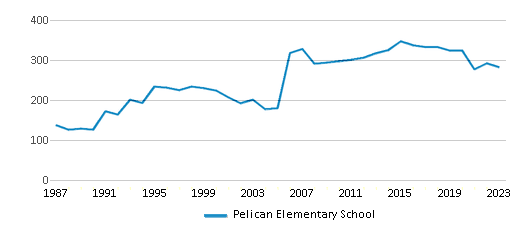
Gender %
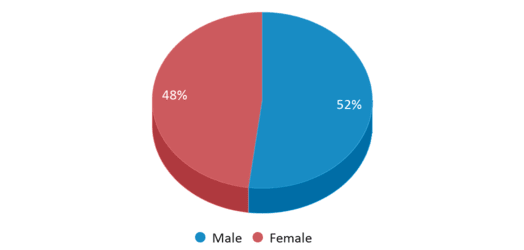
Total Classroom Teachers
30 teachers
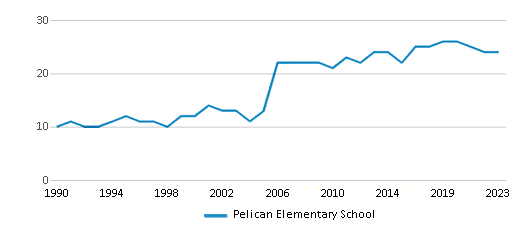
Students by Grade
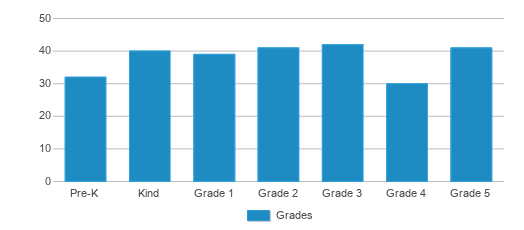
School Rankings
Pelican Elementary School ranks within the bottom 50% of all 1,991 schools in Wisconsin (based off of combined math and reading proficiency testing data).
The diversity score of Pelican Elementary School is 0.17, which is less than the diversity score at state average of 0.53. The school's diversity has stayed relatively flat over five school years.
Overall Testing Rank
#1253 out of 1991 schools
(Bottom 50%)
(Bottom 50%)
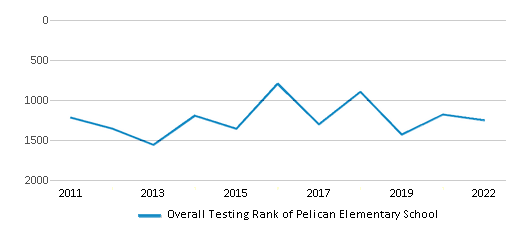
Math Test Scores (% Proficient)
35-39%
39%
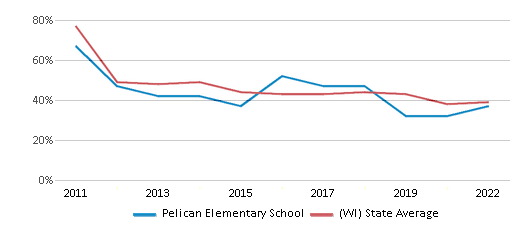
Reading/Language Arts Test Scores (% Proficient)
25-29%
38%
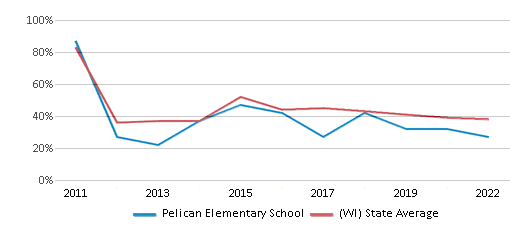
Science Test Scores (% Proficient)
60-69%
44%
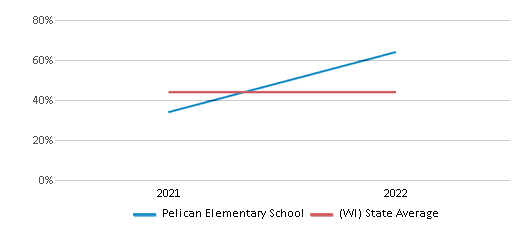
Student : Teacher Ratio
9:1
13:1
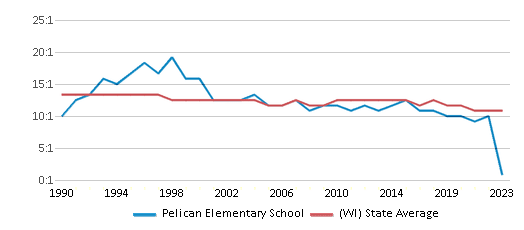
American Indian
2%
1%
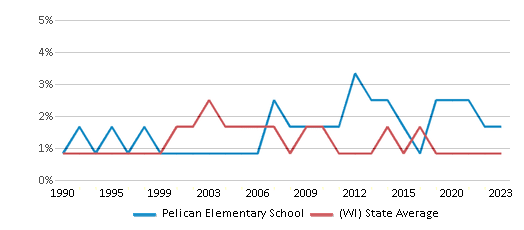
Asian
n/a
4%
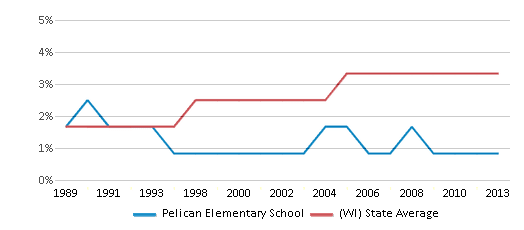
Hispanic
2%
14%
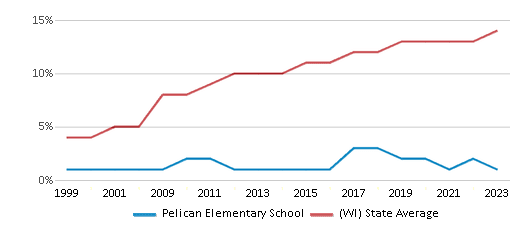
Black
1%
9%
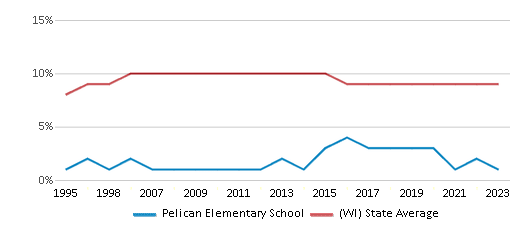
White
91%
67%
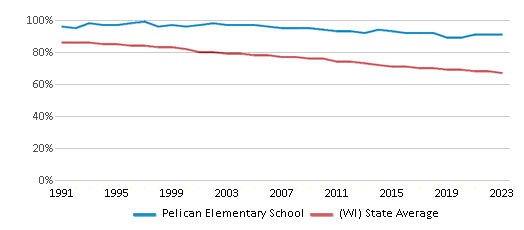
Hawaiian
n/a
n/a
Two or more races
4%
5%
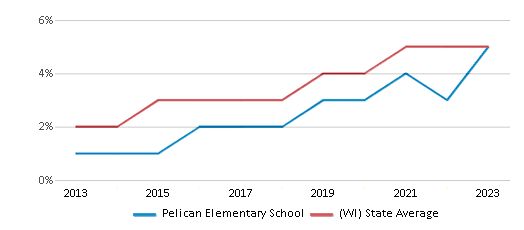
All Ethnic Groups
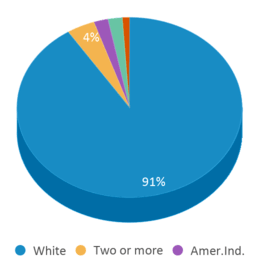
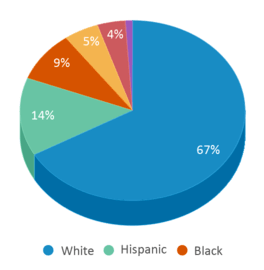
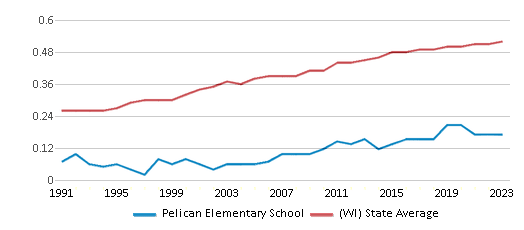
Participates in the National School Lunch Program (NSLP)
Yes
Eligible for Free Lunch
52%
37%
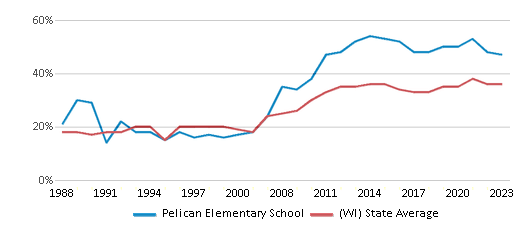
Eligible for Reduced Lunch
6%
4%
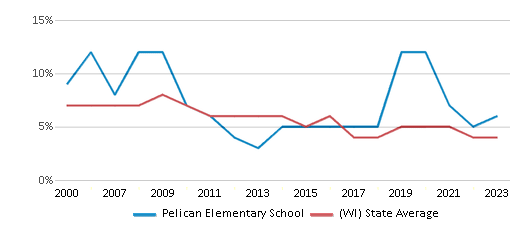
School Statewide Testing
School District Name
Source: National Center for Education Statistics (NCES), WI Dept. of Education
Profile last updated: 02/09/2025
Frequently Asked Questions
What is Pelican Elementary School's ranking?
Pelican Elementary School is ranked #1253 out of 1,991 schools, which ranks it among the bottom 50% of public schools in Wisconsin.
What percent of students have achieved state testing proficiency in math and reading?
35-39% of students have achieved math proficiency (compared to the 39% WI state average), while 25-29% of students have achieved reading proficiency (compared to the 38% WI state average).
How many students attend Pelican Elementary School?
265 students attend Pelican Elementary School.
What is the racial composition of the student body?
91% of Pelican Elementary School students are White, 4% of students are Two or more races, 2% of students are American Indian, 2% of students are Hispanic, and 1% of students are Black.
What is the student:teacher ratio of Pelican Elementary School?
Pelican Elementary School has a student ration of 9:1, which is lower than the Wisconsin state average of 13:1.
What grades does Pelican Elementary School offer ?
Pelican Elementary School offers enrollment in grades Prekindergarten-5 (offers virtual instruction).
What school district is Pelican Elementary School part of?
Pelican Elementary School is part of Rhinelander School District.
School Reviews
2 10/10/2014
I moved to a new school in the middle of the school year last year. I had so many problems with Pelican School in Rhinelander getting the help my daughter needed. My daughter was in every special ed class there was, & still everything was a struggle. Especially in spelling because Rhinelander has a stradegy of the child memorizes the word with no meaning behind it & then they test them. They also diminished my daughter & made her feel less worthy than others. (Mind you this is a child that does not have behavioral issues.) We moved to a school that has a phonics program and same student ratio. Like magic not even a year later my daughter no longer needs any special ed classes & is thriving along with her friends. I would never recommend the Rhinelander School District. I am also s Pre-K teacher so have some teaching background.
Review Pelican Elementary School. Reviews should be a few sentences in length. Please include any comments on:
- Quality of academic programs, teachers, and facilities
- Availability of music, art, sports and other extracurricular activities
Recent Articles

What Is A Charter School?
Explore the world of charter schools in this comprehensive guide. Learn about their history, how they operate, and the pros and cons of this educational innovation. Discover key facts about charter schools, including admission policies, demographics, and funding, as well as what to look for when considering a charter school for your child.

10 Reasons Why High School Sports Benefit Students
Discover the 10 compelling reasons why high school sports are beneficial for students. This comprehensive article explores how athletics enhance academic performance, foster personal growth, and develop crucial life skills. From improved fitness and time management to leadership development and community representation, learn why participating in high school sports can be a game-changer for students' overall success and well-being.

February 05, 2025
Understanding the U.S. Department of Education: Structure, Impact, and EvolutionWe explore how the Department of Education shapes American education, from its cabinet-level leadership to its impact on millions of students, written for general audiences seeking clarity on this vital institution.





